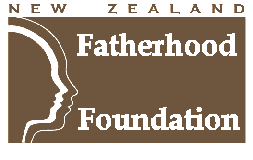Submission on '2006 Census: Preliminary Views'
The Father and Child Society
The Father and Child Society was established in March 1998 and formally incorporated in November 1998. It was created to give local father groups/organisations support in setting up and running initiatives, as well as to improve access to information and improve communication between these groups. It was also formed to represent fathers on a national level through the government's ongoing consultation process with the community.
We wish to comment on two aspects of collecting data on families
and households.
Two household children
The discussion set out in the 2006 Census: Preliminary views on context document on collecting data on “two household” children indicates that Statistics New Zealand is well aware of the problems associated with collecting data based on households. As Statistics New Zealand is also no doubt aware, two of our committee members, Stuart Birks and Paul Callister, have published papers on the problems faced by non-custodial parents when completing the census (Birks, 2001, Callister and Hill, 2002). In these papers we present suggestions for possible changes to the census question. As one example the census question could ask respondents:
“Do you have any biological or adopted children aged 18 or younger who do not live in the household at least half the time?”
A more detailed set of questions could be:
“Are there children under 18 who live part of the time in your household and part of the time with a parent in another household?
If yes, how many children do this?
For each of these children, approximately how many nights do they each spend in your household in a year?”
We recognise that there are problems with these questions with, as an example, issues around how children at boarding school would be treated. We suggest that Statistics New Zealand need to test a range of questions to assess which option works the best.
The “two household” children issue can also distort information on effective household income. Child support is received tax-free, but it might be counted as gross income. Child support payments are an unrecognised cost for households of liable parents. Perhaps this could be at least identified with a question such as, “Is anyone in your household paying child support?”
While this discussion document focuses on the census, this
issue relates to other Statistics New Zealand data collections.
For example, if Statistics New Zealand eventually carries
out another time use survey it will need to explore cross
household patterns of unpaid work. We also recognise the need
to develop more detailed specialist family surveys.
Relationships within a household
When discussing issues of step parents versus biological parents, the Statistics New Zealand discussion document states that “it would be difficult to collect information to distinguish between these different family situations in the census” (p.34). However, the US census provides an example of a question that does try and better understand relationships within households. While recognising that in the U.S. there is still a strong focus on marriage that we do not have in New Zealand, the following question provides a illustration of how the New Zealand census question on household relationships could be revised.
Question 2 regarding the characteristics of other household members – U.S. 2000 Census
How is this person related to person 1. Mark X one box
Husband/wife
Natural-born son/daughter
Adopted son/daughter
Stepson/stepdaughter
Brother/sister
Father/mother
Grandchild
Parent-in-law
Son-in-law/daughter-in-law
Other relative – Print exact relationship
The question goes on to say that if the person is not related then tick the choice of the following boxes
Roomer, border
Housemate, roommate
Unmarried partner
Foster child
Other nonrelative
This still misses step-parent relationships where the step-parent is not person 1. We suggest that Statistics New Zealand explore how the census could provide more detail on relationships within households. In New Zealand, there is very little information available on both intact biological households and blended households and this type of question would provide some baseline data. Perhaps there could just be a general question, “Does your household include someone in a step-parent role?”
References:
Birks, S. (2001) The NZSCHF definition of “family” and its implications, in Stuart Birks (ed.) Child and family: children in families as reflected in statistics, research and policy, Issues Paper No. 11, Palmerston North: Centre for Public Policy Evaluation, pp. 53-62., http://econ.massey.ac.nz/cppe/papers/index.htm#I
Callister, P. and Hill, M. S. (2002) Are “two-parent”
and “single-parent” families misnomers misdirecting
policies and family/work research? Paper presented at the
New Zealand Sociological Association Annual conference Social
Science in the 21st Century: Challenges to Theory/Policy/Practice,
Christchurch, December 5-7.
